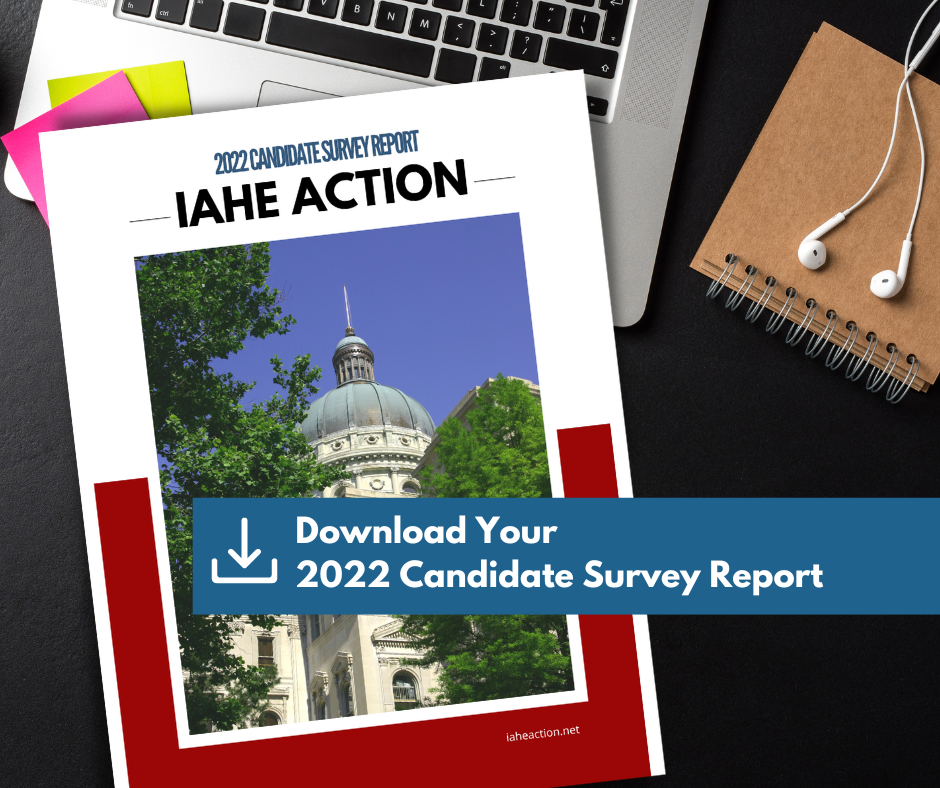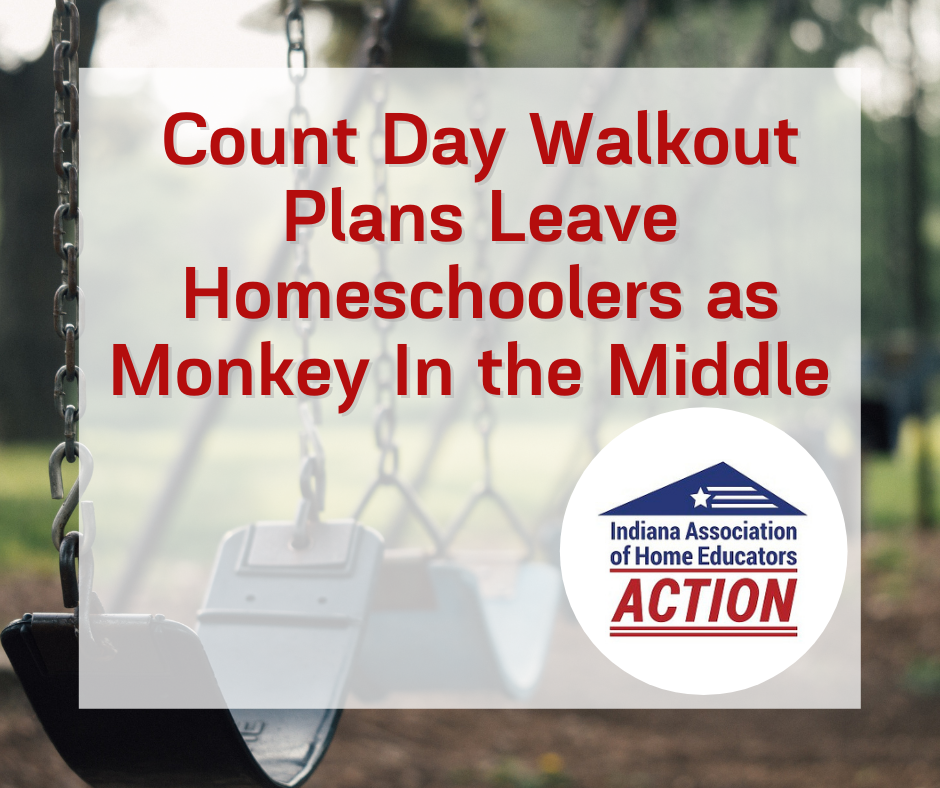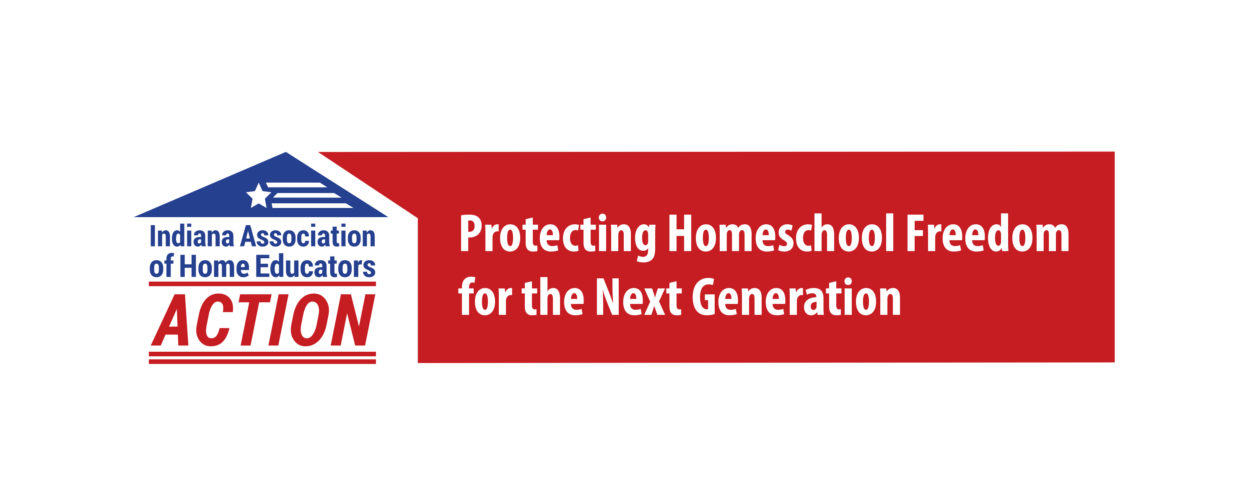Our 2022 Candidate Survey Report is live! Now, more than ever, it is important to know the positions of the candidates wanting to represent the homeschool community. Highlights that you might be encouraged by… Of candidates surveyed: 80% support homeschooling as it is currently regulated 90% are familiar with the differences between homeschooling and virtual…
Author: IAHE Action
Target: Homeschoolers
An Arizona ed-tech company and charter school, Colearn Academy, is targeting Indiana homeschoolers for recruitment to a new virtual public school charter. Seeking a new virtual charter through Education One, the charter authorizer of Trine University, Colearn Academy Indiana (CAI) and its leaders began promoting themselves in the Indiana homeschool community as “a new homeschool…
Count Day Walkout Plans Leave Homeschoolers as Monkey In the Middle
You may recall the common playground game of Monkey In the Middle. When among good-natured friends, it is an amusing pastime at recess. However, even among friends, it becomes tedious and frustrating when one individual is constantly tasked as the “monkey.” This is the current situation of homeschooling in Indiana. Two years ago, before the…
The heart of the conflict – The Natural Right of the Parent to Control their Children’s Upbringing vs. State Power
Currently, almost all students in Indiana go to public school kindergarten. But, parents have a choice to delay formal education until age 7. There are people who want to take that right away from parents. If the compulsory school age is lowered, all 5 and 6-year-old children will be forced to begin formal education at…
Diploma Language on the IDOE Website
Occasionally, Indiana Association of Home Educators (IAHE) or IAHE Action receive inquiries from colleges or employers about homeschool diplomas. A potential employer informed IAHE Action that the State Board of Education (SBOE) had language on its website that stated homeschoolers should get an accredited diploma which was then used by the potential employer to discriminate…
What Do You Mean Kindergarten Isn’t Mandatory in Indiana?
Kindergarten isn’t mandatory in Indiana, but almost all children in Indiana already begin kindergarten at age 5. It is so common to start school at age 5 that most people assume that kindergarten is mandatory when a child is eligible. Indiana educators are now pushing to lower the compulsory school age to 5. (It’s also…
IAHE Action Letter to State Board of Education Regarding Diploma Changes
Due the School to Prison Pipeline debacle where schools inappropriately encouraged students to “homeschool” even though they did not have parental support, we have serious concerns about the potential change in diploma requirements that will make it even more difficult for struggling students to earn a public high school diploma. We believe these students’ educational issues…
Milton Friedman and Conservatives: Wrong on Education
The original post by Jacob G. Hornberger may be found on The Future of Freedom Foundation blog. Republished with permission. Once upon a time, some conservatives used to call for the abolition of the U.S. Department of Education. Lamentably, conservatives today celebrate when a “free-market advocate” like multimillionaire Betsy DeVos is appointed U.S. Secretary of Education,…
Are Indiana’s Proposed Graduation Pathways Problematic for Home Educators?
IAHE Action has monitored the work of the Graduation Pathways Panel. In 2015, there were efforts to update diploma requirements which were later abandoned after pushback from the special needs community. IAHE had a concern at that time about the influence of Common Core. It seemed to many the focus of state education had switched to…
A Brief History of Indiana Homeschool Freedom
Here’s a timeline of some issues that have affected Indiana home educators through the years. It’s a reminder that our liberty to educate our children at home is precious and must be continually guarded. Thank you for standing with IAHE and IAHE Action. 1904 – Indiana has the nation’s earliest homeschool court ruling in State v. Peterman. Essentially,…



